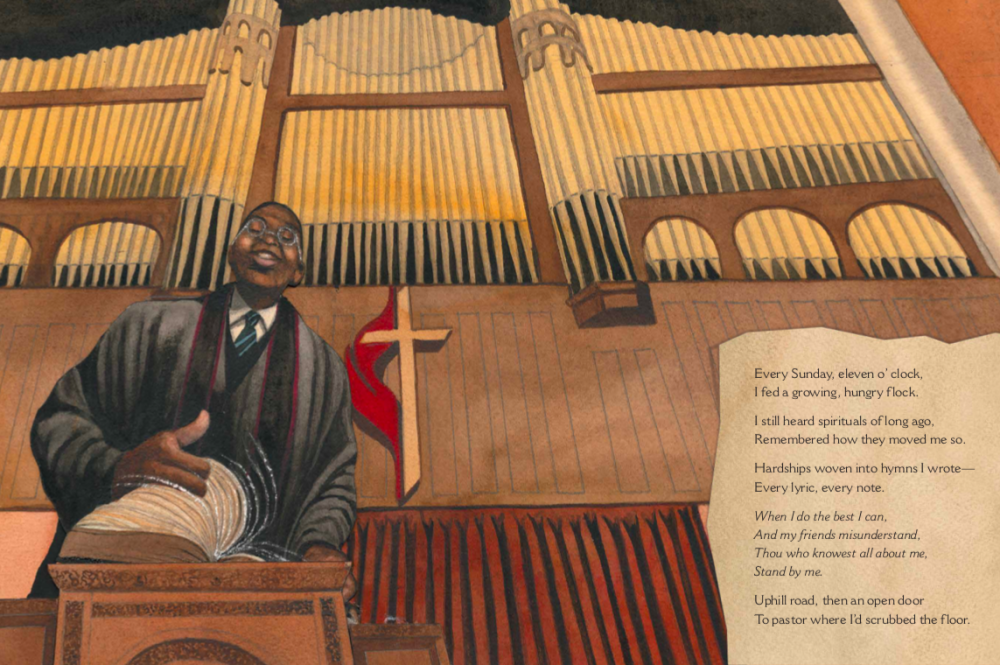New children’s book highlights ‘Father of Gospel Music’

Disbelief is often the response Carole Boston Weatherford gets from children about her books featuring notable African Americans.
“Kids just can’t believe that our nation allowed those kinds of injustices to visit upon so many people,” said Weatherford, a poet who has written children’s books on Fannie Lou Hamer, Harriet Tubman, Lena Horne, and others.
“I want them to be appalled,” she said. “I want them to be shocked that [slavery and racial discrimination] happened, but I also want them to be inspired that my subjects overcame those injustices . . . and persisted in reaching their potential and in making contributions to their communities and to larger society.”





